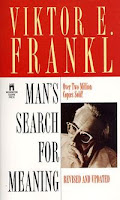“Faithful to the end, Focus on the Lord.” That was the title of the message this morning by the pastor, Peter Tan Chi at CCF, the church I’m attending at. As much as I don’t want to be technical and go into the details of the message, I must write the four things he mentioned on how we can remain faithful to the end:
Don’t focus on the past
Don’t tolerate small compromises
Do practice spiritual disciplines
Do develop eternal perspective.
Within the length of it, there was one sentence that became very significant to me. He said “Christians should not reach a plateau.” or something similar to that effect. He mentioned the principle of “skiing”, which I think a lot of us would understand but too few of us would be able to relate to. Funny how he said it, but true, that in skiing, there is only one thing to do, and that is to go down. In a similar manner, if we do nothing, we fall down.
Idleness. That is perhaps one of the cause why a lot of Christians eventually do not finish well in the race. I remember my grandfather. He is already in his eighties but he is still active in his work. And I think that when the day comes that he ceases being active, that is the time he ceases. I noticed that when people become inactive, they would begin feeling “useless” and would slowly feel the pangs of depression. That was how I felt when I had no work for months, that almost took a year. But that is another story.
Peter was of course talking of a spiritual downhill and not of physical activity. “Christians should not reach a plateau.” I believe when we reach a plateau, that is almost similar to a flat line, a medical term often used when the heart stops to beat and shows no electrical activity. To prevent going on a flat line, we must be attuned to God. There are five “activities” he suggested. And that is Bible reading, prayer, meditation, worship and fellowship. Activities that should not be missed. Activities that should become natural, just like breathing, just like eating. Activities that when we miss, makes us weak.
I just came from a retreat a week ago. I was a facilitator in that retreat. What does a facilitator do? To put it simply, we “facilitate” discussions after a message is given. There are almost eight hundred participants in the retreat, and we try to discuss the message in a small group of five to eight people, so as to make sure that participants understand the message, hopefully be able to answer questions left unanswered, and help each one realize how we should respond to the message. I went there with eagerness, with the idea to serve. And the passion still remain. But how do I remain faithful to the end? How would I prevent myself going in a plateau? Sometimes, I fear that there would come a time when I would run out of energy just like an engine would run out of gasoline. I could only refer to the assurance of God, in Isaiah 40:28-31:
Do you not know? Have you not heard?
The Everlasting God, the LORD, the Creator of the ends of the earth
does not become weary or tired 
His understanding is inscrutable.
He gives strength to the weary,
and to him who lacks might He increases power.
Though youths grow weary and tired,
and vigorous young men stumble badly,
Yet those who wait for the LORD
will gain new strength;
They will mount up with wings like eagles,
They will run and not get tired,
They will walk and not become weary.



